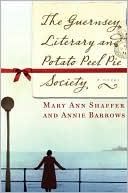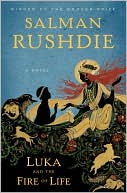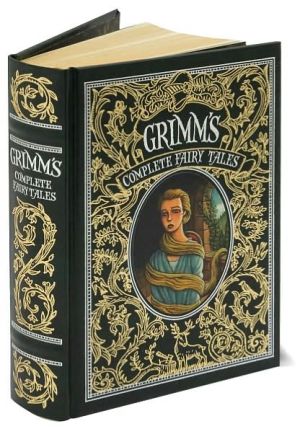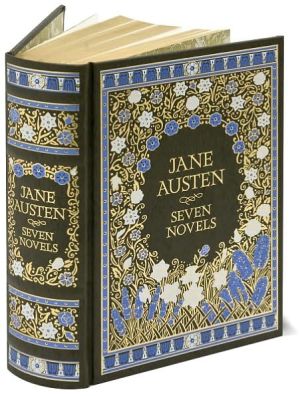Between the Acts
The author's last novel, written during the early years of World War II, was completed just before her death. The action takes place on a single summer's day at a country house, Pointz Hall, in the heart of England. In the garden the villagers are presenting their annual pageant - on this occasion scenes from English history up to and including "ourselves," the audience, in June 1939. During the interludes the inhabitants of Pointz Hall, the Olivers, their guests, and the villagers have tea,...
Search in google:
A scholarly edition of Woolf's last manuscript of the text, with full explanatory and textual apparatus.
IT WAS a summer’s night and they were talking, in the big room with the windows open to the garden, about the cesspool. The county council had promised to bring water to the village, but they hadn’t.\ Mrs. Haines, the wife of the gentleman farmer, a goosefaced woman with eyes protruding as if they saw something to gobble in the gutter, said affectedly: "What a subject to talk about on a night like this!"\ Then there was silence; and a cow coughed; and that led her to say how odd it was, as a child, she had never feared cows, only horses. But, then, as a small child in a perambulator, a great cart-horse had brushed within an inch of her face. Her family, she told the old man in the arm-chair, had lived near Liskeard for many centuries. There were the graves in the churchyard to prove it.\ A bird chuckled outside. "A nightingale?" asked Mrs. Haines. No, nightingales didn’t come so far north. It was a daylight bird, chuckling over the substance and succulence of the day, over worms, snails, grit, even in sleep.\ The old man in the arm-chair—Mr. Oliver, of the Indian Civil Service, retired—said that the site they had chosen for the cesspool was, if he had heard aright, on the Roman road. From an aeroplane, he said, you could still see, plainly marked, the scars made by the Britons; by the Romans; by the Elizabethan manor house; and by the plough, when they ploughed the hill to grow wheat in the Napoleonic wars.\ "But you don’t remember . . ." Mrs. Haines began. No, not that. Still he did remember——and he was about to tell them what, when there was a sound outside, and Isa, his son’s wife, came in with her hair in pigtails; she was wearing a dressing-gown with faded peacocks on it. She came in like a swan swimming its way; then was checked and stopped; was surprised to find people there; and lights burning. She had been sitting with her little boy who wasn’t well, she apologized. What had they been saying?\ "Discussing the cesspool," said Mr. Oliver.\ "What a subject to talk about on a night like this!" Mrs. Haines exclaimed again.\ What had he said about the cesspool; or indeed about anything? Isa wondered, inclining her head towards the gentleman farmer, Rupert Haines. She had met him at a Bazaar; and at a tennis party. He had handed her a cup and a racquet—that was all. But in his ravaged face she always felt mystery; and in his silence, passion. At the tennis party she had felt this, and at the Bazaar. Now a third time, if anything more strongly, she felt it again.\ "I remember," the old man interrupted, "my mother. . . ." Of his mother he remembered that she was very stout; kept her tea-caddy locked; yet had given him in that very room a copy of Byron. It was over sixty years ago, he told them, that his mother had given him the works of Byron in that very room. He paused.\ "She walks in beauty like the night," he quoted.\ Then again:\ "So we’ll go no more a-roving by the light of the moon."\ Isa raised her head. The words made two rings, perfect rings, that floated them, herself and Haines, like two swans down stream. But his snow-white breast was circled with a tangle of dirty duckweed; and she too, in her webbed feet was entangled, by her husband, the stockbroker. Sitting on her three-cornered chair she swayed, with her dark pigtails hanging, and her body like a bolster in its faded dressing-gown.\ Mrs. Haines was aware of the emotion circling them, excluding her. She waited, as one waits for the strain of an organ to die out before leaving church. In the car going home to the red villa in the cornfields, she would destroy it, as a thrush pecks the wings off a butterfly. Allowing ten seconds to intervene, she rose; paused; and then, as if she had heard the last strain die out, offered Mrs. Giles Oliver her hand.\ But Isa, though she should have risen at the same moment that Mrs. Haines rose, sat on. Mrs. Haines glared at her out of goose-like eyes, gobbling, "Please, Mrs. Giles Oliver, do me the kindness to recognize my existence. . . ." which she was forced to do, rising at last from her chair, in her faded dressing-gown, with the pigtails falling over each shoulder.\ Pointz Hall was seen in the light of an early summer morning to be a middle-sized house. It did not rank among the houses that are mentioned in guide books. It was too homely. But this whitish house with the grey roof, and the wing thrown out at right angles, lying unfortunately low on the meadow with a fringe of trees on the bank above it so that smoke curled up to the nests of the rooks, was a desirable house to live in. Driving past, people said to each other: "I wonder if that’ll ever come into the market?" and to the chauffeur: "Who lives there?"\ The chauffeur didn’t know. The Olivers, who had bought the place something over a century ago, had no connection with the Warings, the Elveys, the Mannerings or the Burnets; the old families who had all intermarried, and lay in their deaths intertwisted, like the ivy roots, beneath the churchyard wall.\ Only something over a hundred and twenty years the Olivers had been there. Still, on going up the principal staircase—there was another, a mere ladder at the back for the servants—there was a portrait. A length of yellow brocade was visible half-way up; and, as one reached the top, a small powdered face, a great head-dress slung with pearls, came into view; an ancestress of sorts. Six or seven bedrooms opened out of the corridor. The butler had been a soldier; had married a lady’s maid; and, under a glass case there was a watch that had stopped a bullet on the field of Waterloo.\ It was early morning. The dew was on the grass. The church clock struck eight times. Mrs. Swithin drew the curtain in her bedroom—the faded white chintz that so agreeably from the outside tinged the window with its green lining. There with her old hands on the hasp, jerking it open, she stood: old Oliver’s married sister; a widow. She always meant to set up a house of her own; perhaps in Kensington, perhaps at Kew, so that she could have the benefit of the gardens. But she stayed on all through the summer; and when winter wept its damp upon the panes, and choked the gutters with dead leaves, she said: "Why, Bart, did they build the house in the hollow, facing north?" Her brother said, "Obviously to escape from nature. Weren’t four horses needed to drag the family coach through the mud?" Then he told her the famous story of the great eighteenth-century winter; when for a whole month the house had been blocked by snow. And the trees had fallen. So every year, when winter came, Mrs. Swithin retired to Hastings.\ But it was summer now. She had been waked by the birds. How they sang! attacking the dawn like so many choir boys attacking an iced cake. Forced to listen, she had stretched for her favourite reading—an Outline of History—and had spent the hours between three and five thinking of rhododendron forests in Piccadilly; when the entire continent, not then, she understood, divided by a channel, was all one; populated, she understood, by elephant-bodied, seal-necked, heaving, surging, slowly writhing, and, she supposed, barking monsters; the iguanodon, the mammoth, and the mastodon; from whom presumably, she thought, jerking the window open, we descend.\ It took her five seconds in actual time, in mind time ever so much longer, to separate Grace herself, with blue china on a tray, from the leather-covered grunting monster who was about, as the door opened, to demolish a whole tree in the green steaming undergrowth of the primeval forest. Naturally, she jumped, as Grace put the tray down and said: "Good morning, Ma’am." "Batty," Grace called her, as she felt on her face the divided glance that was half meant for a beast in a swamp, half for a maid in a print frock and white apron.\ "How those birds sing!" said Mrs. Swithin, at a venture. The window was open now; the birds certainly were singing. An obliging thrush hopped across the lawn; a coil of pinkish rubber twisted in its beak. Tempted by the sight to continue her imaginative reconstruction of the past, Mrs. Swithin paused; she was given to increasing the bounds of the moment by flights into past or future; or sidelong down corridors and alleys; but she remembered her mother—her mother in that very room rebuking her. "Don’t stand gaping, Lucy, or the wind’ll change . . ." How often her mother had rebuked her in that very room—"but in a very different world," as her brother would remind her. So she sat down to morning tea, like any other old lady with a high nose, thin cheeks, a ring on her finger and the usual trappings of rather shabby but gallant old age, which included in her case a cross gleaming gold on her breast.\ \ Copyright 1941 by Harcourt, Inc., and renewed 1969 by Leonard Woolf\ Annotated Edition copyright © 2008 by Houghton Mifflin Harcourt Publishing Company\ Preface copyright © 2005 by Mark Hussey\ Introduction copyright © 2008 by Melba Cuddy-Keane\ All rights reserved. No part of this publication may be reproduced or transmitted in any form or by any means, electronic or mechanical, including photocopy, recording, or any information storage and retrieval system, without permission in writing from the publisher.\ Requests for permission to make copies of any part of the work should be submitted online at www.harcourt.com/ contact or mailed to the following address: Permissions Department, Houghton Mifflin Harcourt Publishing Company, 6277 Sea Harbor Drive, Orlando, Florida 32887-6777.
General editors' preface Chronology Introduction Chronology of composition Between the Acts Explanatory notes Textual apparatus Textual notes.








